Gaetek looks back on the past 25 years and the secrets of his success
“The real secret to making music that endures is not to think about being successful in the short term."
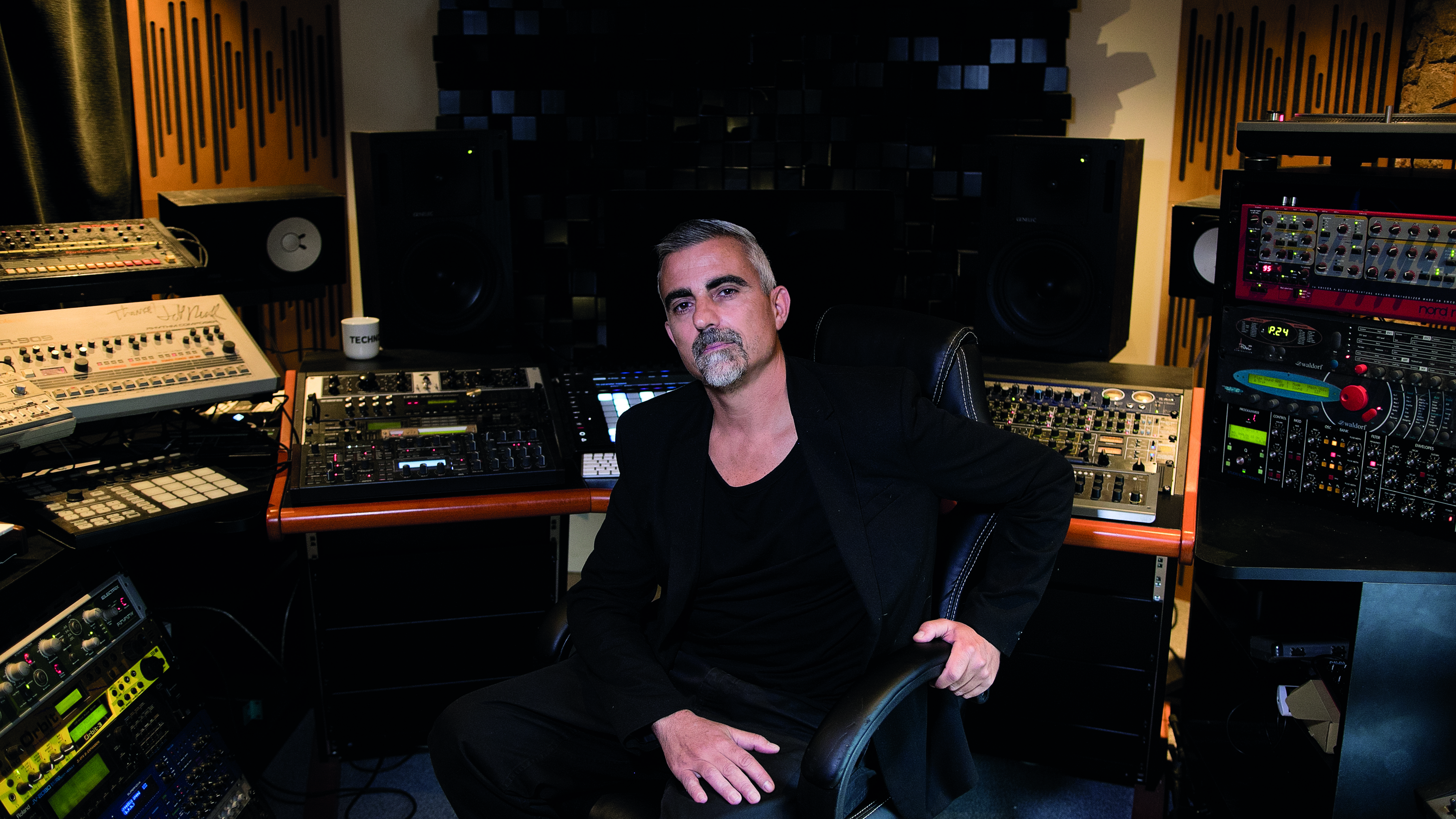
Initially, a purveyor of European electronic pop, Italian DJ and producer Gaetano Parisio began making records in the late ’90s, debuting with the techno EP 7775-Line.
Adopting a funkier approach infused with Latin flavours, a flurry of classic Gaetek tunes became staples of the Neapolitan techno scene, diverging from the genre’s lengthy association with Detroit and Berlin.
Parisio created the respected independent label Conform in 1997, playing host to artists such as Adam Beyer, Ben Sims and The Advent.
Over the past year, the trio has joined forces with other techno mainstays including Deetron, Radio Slave and Mark Broom to re-edit numerous tracks from Gaetek’s back catalogue. The series continues early this year with Re-Touched Series Vol. IV.
What changed between listening to electronic pop and becoming a dance music producer?
“I was listening to electronic bands like Depeche Mode, New Order and Ultravox and then I got into clubbing in the ’90s and immediately felt a connection with techno. I was amazed at the sounds that were coming from the vinyl and was curious to understand how the music was created.
"From that point, I bought Atari ST Notator and a Roland TR-909 and started to make productions. I didn’t have any knowledge at the time – it was like learning to play football on the street, but step by step I built my own studio.”
Get the MusicRadar Newsletter
Want all the hottest music and gear news, reviews, deals, features and more, direct to your inbox? Sign up here.
Jeff Mills is one of your biggest inspirations…
“Whatever he does, from techno to cinema soundtracks or the newer experimental and jazzier stuff, the bottom line is that he always delivers with extreme quality.
"He isn’t making music just to please people but always brings a spirit of research and creates music that’s much more advanced. He’s one of the few artists who has raised the bar and stayed true to that, so he’s a big inspiration.”
Would you like to think of yourself as equally influential in your home country?
“Yes, but not in my own country because I’m probably more popular outside of Italy. I left quite a long time ago and was quite surprised at how many people I’ve met from a new generation that is inspired by my records. They know the colours of all the record covers – things that I don’t even remember!
"I’m pleased to have left something positive behind, but it’s a bit weird because I hoped but never thought what I was doing back then would last for such a long period of time.”
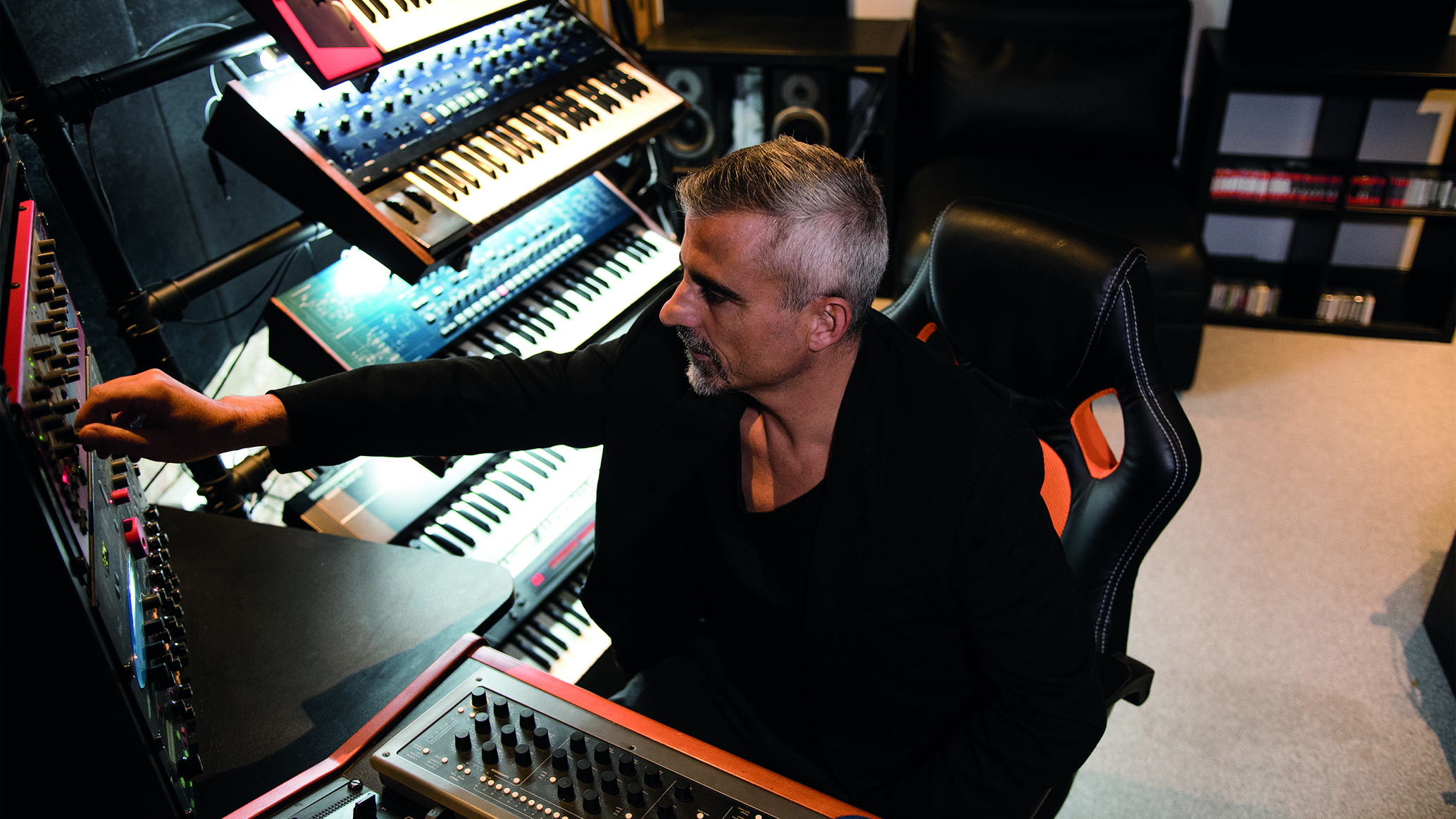
You’ve been making records for 25 years now. What’s the secret to your success?
The real secret to making music that endures is not to think about being successful in the short term.
“The real secret to making music that endures is not to think about being successful in the short term. Music is simple in a way because it’s just mathematics. As long as you’re a little bit talented, once you understand how to put all the notes in and harmonies together it’s not difficult to make something that sounds catchy but you want your music to last longer than a week or a month.
"A good starting point is to ask yourself why you’re making music because if you immediately think about being successful you get lost. The difference from artist to artist is not what they do in the studio but the meaning behind that. I always want to imagine that what I am doing now will still be relevant in 10 or 20 years.”
Has it been difficult to adjust to life without DJing since the pandemic started?
“Club culture is all about being connected, in either one room or at a big event. Unfortunately, Covid has really touched the contact between the people that characterise that and I don’t know when we’ll get back to normality – depending on what normality means.
"A lot of people are struggling, but it’s a strong culture so it will resist. Personally, I’d already taken a long break from DJing and the music scene in general so my daily routine didn’t change a lot. Music is the only option I have, so I’ll keep on making music.”
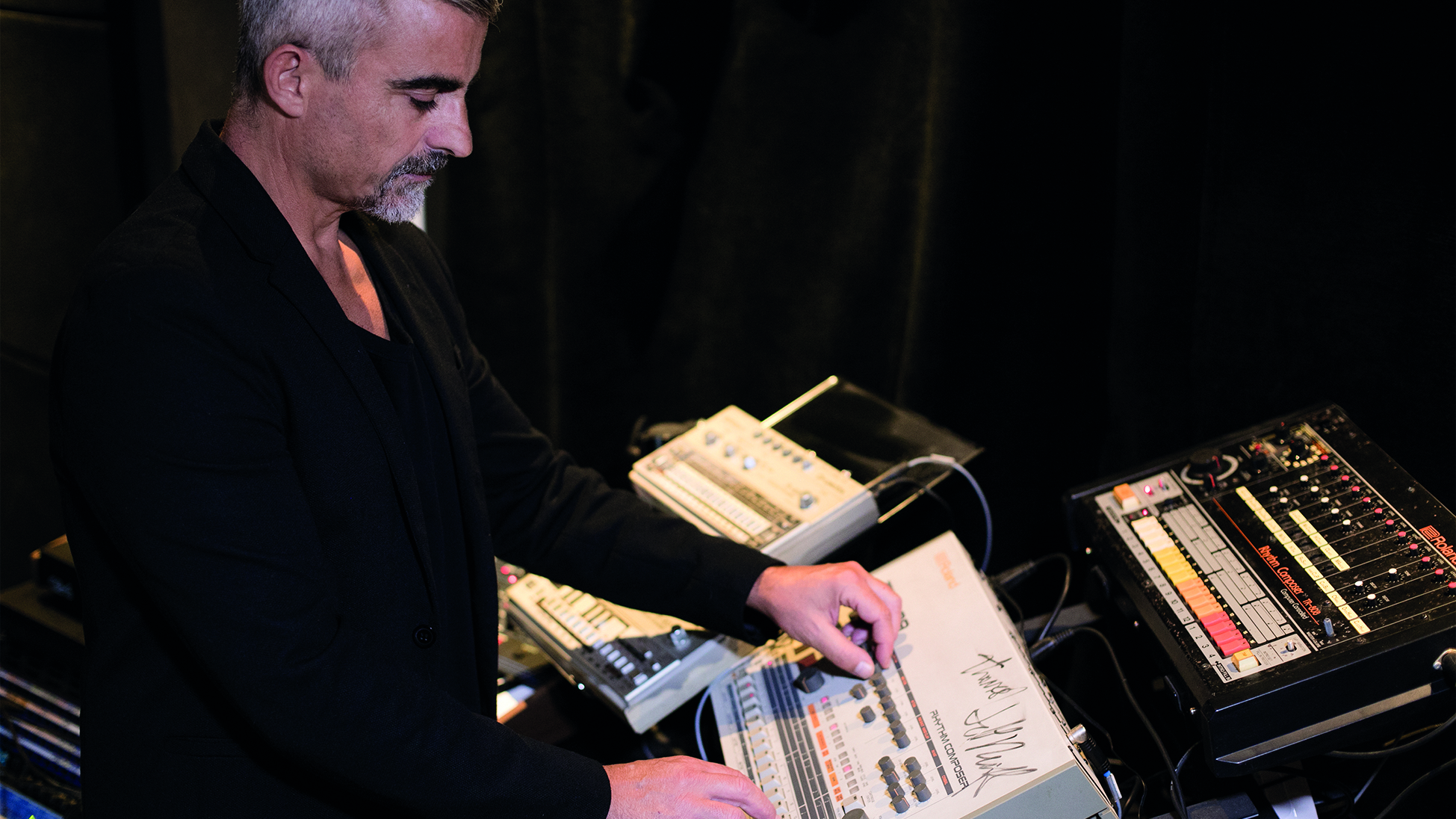
You’ve been releasing your Re-Touched Series throughout 2020. What can tell us about that?
“It’s been 15 years since my last release on my label so probably more than one generation of clubbers has passed. With that in mind, I selected a few tracks from my back catalogue to remake and my first idea was to select artists that still inspire me as they haven’t changed their attitude throughout the years.
"Because these tracks are 20 years old, I gave them tracks recorded from the DAT tapes and they were super-happy to re-edit them. That’s why it’s called Re-Touched, because I could only give them the loop-based tracks and not the separate parts, so we couldn’t say it was a remix.”
It must have been great to get edits back from the likes of Deetron, Mark Broom, Radio Slave and Ken Ishii. Did you learn anything from these reinterpretations?
“Of course, there is always a lot to learn because these guys are really masters. There’s a lot of different ways to re-edit a track but I was surprised at how they all started from a different point. Some of them politely touched my original and added a few elements and others completely deconstructed tracks to make their own versions.
"For example, Deetron and Mark Broom did an amazing job. It’s like all these years have never passed – they still have a really raw sound but resist the temptation to make things sound complicated.”
Is simplicity the key to making good techno?
Having too much knowledge creates too many rules, and when you have too many rules you lose creativity.
“Sometimes with music technology you can have too many options, especially with all the plugins available these days. When these tracks were made we only had a little bit of hardware but we’d use them to 100% of their potential.
"Right now, I think a lot of artists get a bit distracted and focus too much on technique. That’s why I was so impressed with these re-edits, because the artists I chose are more focused on the music-making process than showing off their technique. That comes from experience, but also because they have a vision of what they want to do with their music.
"I know that from my own experience because I’m addicted to learning something new about production every day and like to keep myself updated but also understand that having too much knowledge creates too many rules, and when you have too many rules you lose creativity.”
Can you give an example of how you might restrict yourself to fewer rules?
“In my production environment, I have the opportunity to use all the scales to keep everything in harmony. At certain points that’s useful, but after a while, I realised that while all of these plugins make things easier the magic mainly comes from dissonance, not precision.
"It’s the slight mistakes that can make the difference and the best part of my music always came from mistakes, especially when I was young and didn’t have a clue about all these rules. In recent years I’ve had to challenge myself to unlearn what I studied and just stick to a few basic rules in the studio.”
How have you gone about achieving that?
“Now I select sounds from a few machines that I really want to use and try to master those machines rather than experiment with lots of different options or plugins. I understand that you can get plugins nowadays for £50 that are equivalent to expensive hardware, but when you use software plugins I don’t think you pay enough attention to what you actually have in your hands.”
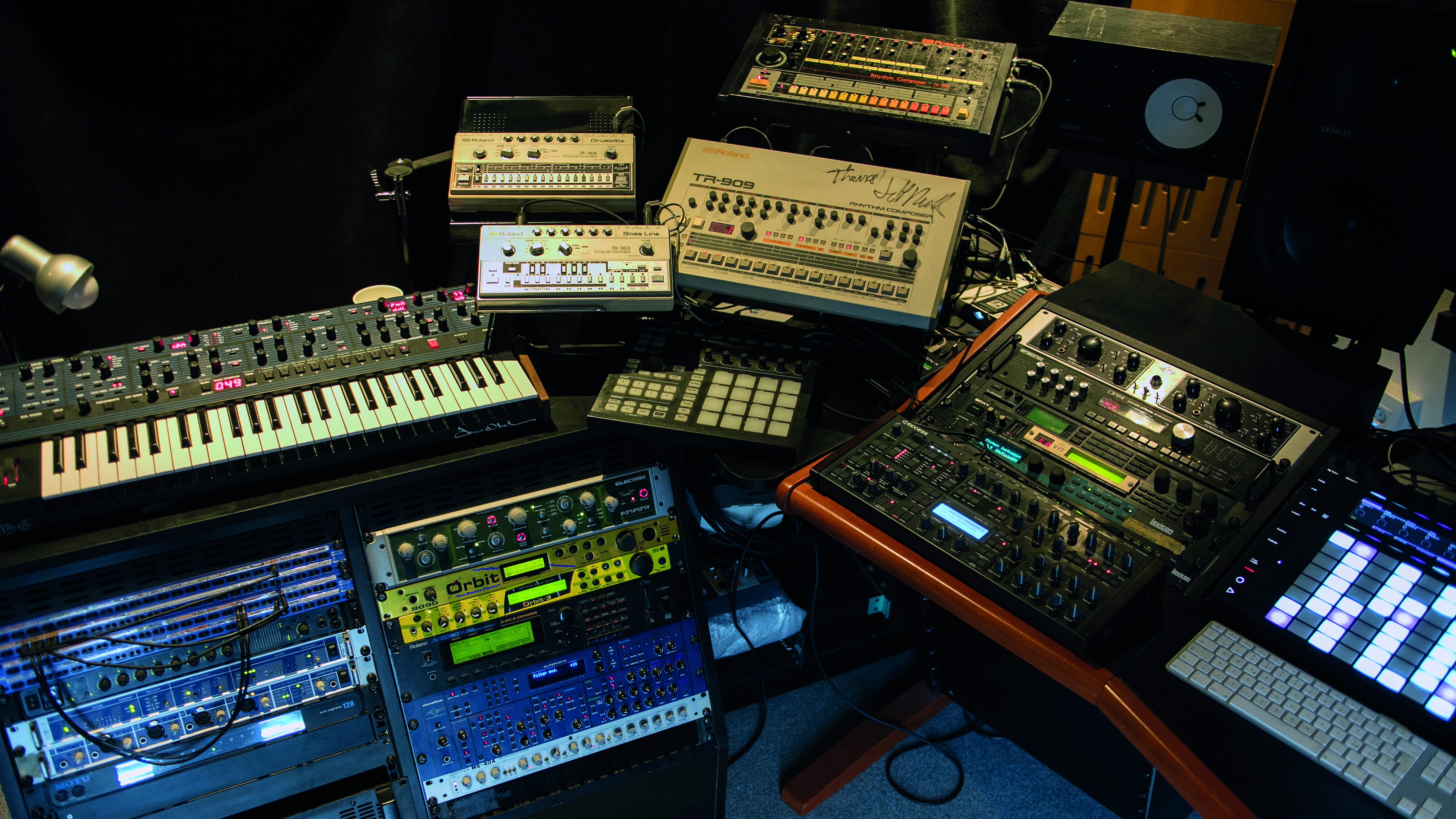
Any tips for budding producers on how to develop their own style?
“Be recognisable. For me that means two things. First, your style can be techno or house but it’s a partner that you have in your brain that defines you. Then you have the sound that comes from your studio, driven by the gear you use.
"If you keep changing stuff in your studio all the time, you’ll have a different sound every time. It’s like when you see a Picasso painting, you immediately understand it’s him, or if you watch a Hitchcock movie, you immediately know it’s him. Why? He always uses the same filter for the light and the silence between the dialogue helps defines his style. That’s really important, especially in the digital world where everything sounds so precise and perfect.
"30 years ago we were ready to pay anything to achieve that perfection, but unfortunately, the imperfection has been forgotten.”
Is it important to have all the right tools in place as an act of preparedness for creativity?
The 909’s sequencer is a little bit obsolete. For example, the closed and open-hit hats cut each other off, but if I use Ableton and all the Max for Live devices – or other sequencers that have polyrhythmic patterns, they give the 909 a completely new life.
“When you jump into the studio you usually find the gold in the first half-hour. I don’t like to miss this window. In the early days, because I used to record to DAT, I always wanted to have a track recorded by the end of the day.
"These days, I wonder how many opportunities I lost because I decided to continue a track tomorrow or the day after. The problem with that is your mood changes from day to day so capturing that initial vibe is lost.
"Right now, I’m trying to force myself to record a track the same day I started it. Of course, you might want to arrange some elements later.”
You mentioned earlier about having a vision. How does that express itself?
“Before I first go into the studio I really don’t know what I’ll do. Some of the time I start from the groove or percussion and other times it’s a sound I really like, but what’s already inside of me is a vision of what I’ll do in terms of releasing the music. I spent about 15 years in the studio without even releasing a track because I always want my music to be part of a series.
"A normal EP is limited – not a waste of time, but the message that you want to deliver will be incomplete as those tracks might not appear on an album for a year. For me a series can be a perfect antidote to that; each series is a sister to the other and you can create an entire vision with all the tracks connected like chapters in a book. Ask yourself why you’re producing music? Of course, you want to sell records, but more than that you want to be respected and for your music to survive.”
You’re surrounded by classic gear, but are you able to use the Roland drum machines, for example, in a way that remains innovative?
“In the last eight months, I’ve discovered that the TR-909 is a really amazing machine. Because it’s analogue it’s totally different to using software samples but what I’ve been doing right now is taking advantage of the new sequencers.
"The 909’s sequencer is a little bit obsolete. For example, the closed and open-hit hats cut each other off, but if I use Ableton and all the Max for Live devices – or other sequencers that have polyrhythmic patterns, they give the 909 a completely new life.”
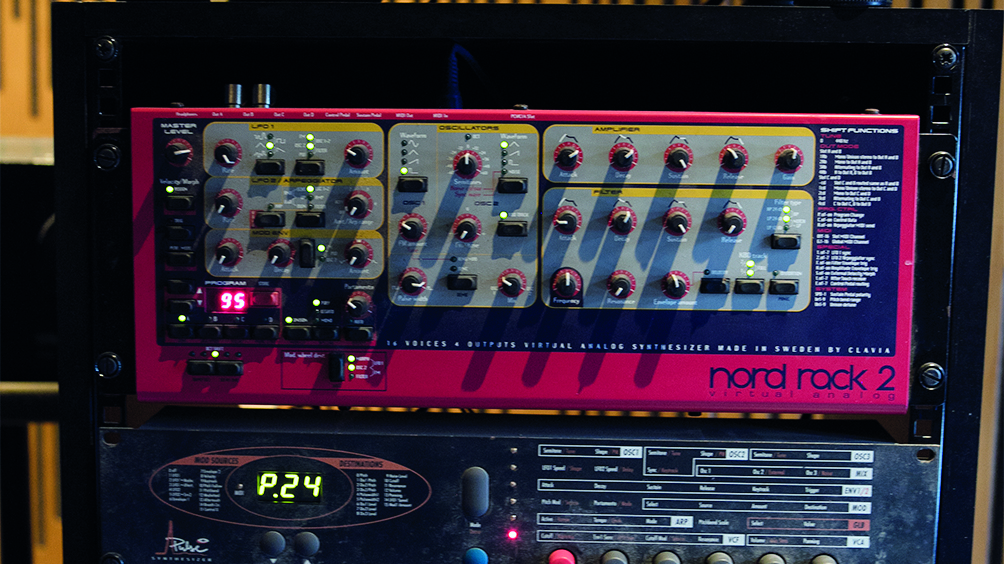
How do you achieve that?
“By using randomisation of the velocity you can start to humanise the pattern sequences, and I’m really falling back in love with the 909 because of that. This is a perfect example of how you can take advantage of old hardware using new technologies and what I really like right now is to use a lot of the MIDI environments in Ableton because there are so many MIDI plugins that can trigger the machines in different and impossible ways that you can’t do with your own hands.
"I particularly love the endless permutations and it’s better than editing audio because when you’re using the hardware the sound that comes from those machines is alive.”
Have you tried the relaunched versions of the Roland rhythm machines, like the TR-8S?
“Not the hardware versions, but I have the plugins. In future, I want to prepare a live set, so I’ll try to use the AIRA TR-8S drum machine for that, but in the studio, I’m using some Roland plugins that are pretty identical to the hardware. For example, the Roland JV-2080 from the late ’90s and the Roland JV-1080 plugin is exactly the same.”
Do you have any modern synths that you feel bridge the gap between the analogue and digital worlds successfully?
“One synth that is really unique is the Nord Modular G2. I think it was released in 1998, but it was the first hybrid synth ever and it used USB to communicate between the G2 and the editing software. I found that machine really fun to work with and thank god the software is still running.
"The only software that makes a difference to me right now is the sequencer and MIDI environment plugins. They’re nothing special, but that doesn’t exist in the hardware. For example, there’s no hardware I know of that lets me create echo or feedback delay using MIDI notes.”
Ever regretted getting rid of any hardware?
“The way I built my studio I’ve kept all my hardware but I don’t use a mixer anymore. I sum in analogue, so the only thing I’m struggling with at the moment is not being able to put my hands on two knobs at the same time. Because I mostly make loop-based tracks, it’s all about trying to get the frequencies to work together so the process of trying to EQ two channels at the same time is quite important.
"The objective is to make sure that the time between thinking up an idea and realising it is as short as possible.”
What other studio tips have you got for us?
“My first advice is to build your own hardware setup and create routing so that once you open your software you can jump directly into an environment where you can begin working without having to start everything from scratch.”
You dreamt of being a footballer. Would you have rather done that than be a DJ/producer?
“It’s not true [laughs]. I was actually a professional sailor and at one point we became European and world champions. The problem was that the regatta started at 8 o’clock on a Sunday but because I finished clubbing at 6 o’clock in the morning I’d arrive without having had any sleep. After that, I decided that I had to do one or the other, so I decided music.”


Future Music is the number one magazine for today's producers. Packed with technique and technology we'll help you make great new music. All-access artist interviews, in-depth gear reviews, essential production tutorials and much more. Every marvellous monthly edition features reliable reviews of the latest and greatest hardware and software technology and techniques, unparalleled advice, in-depth interviews, sensational free samples and so much more to improve the experience and outcome of your music-making.










